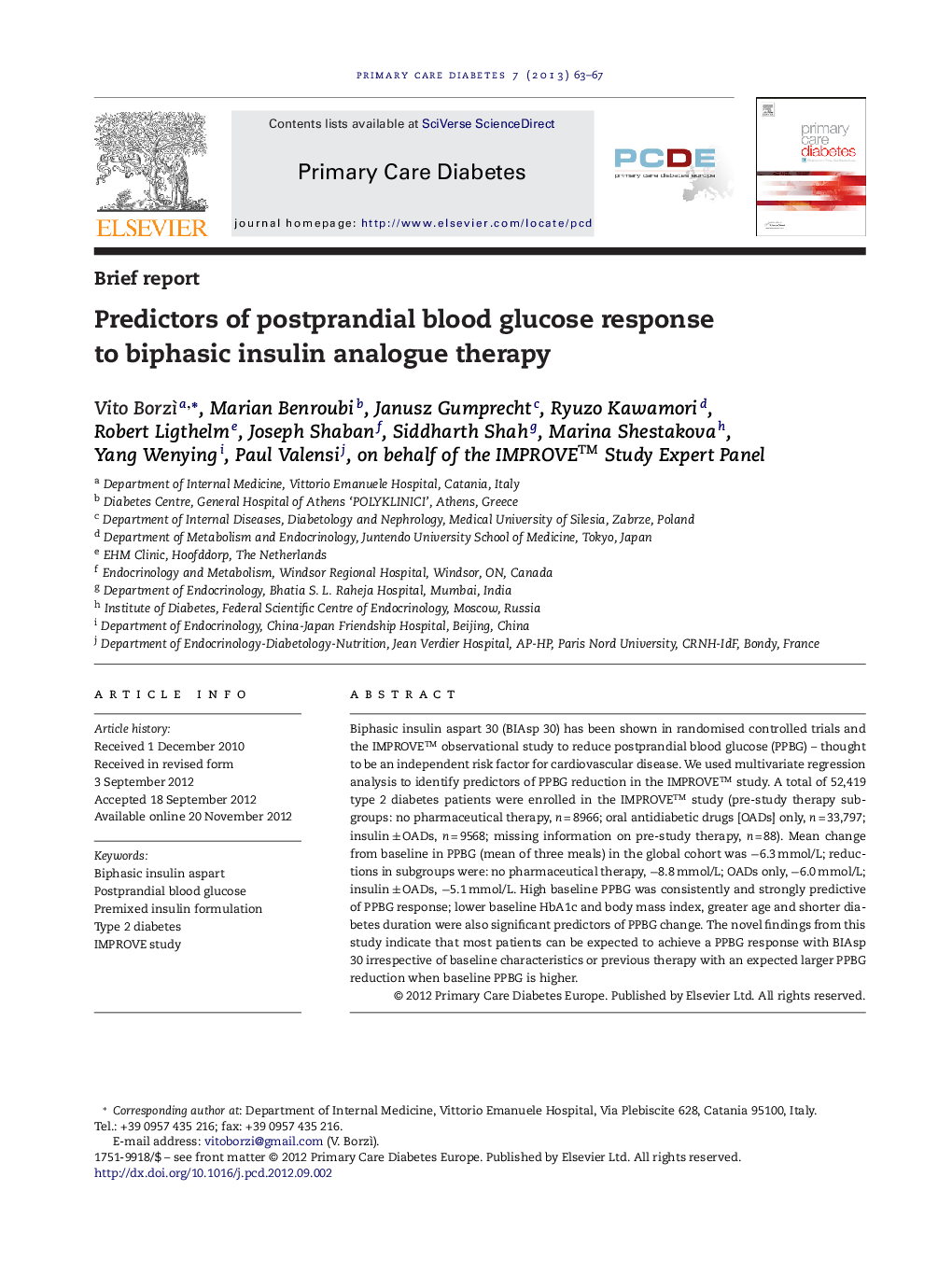| Article ID | Journal | Published Year | Pages | File Type |
|---|---|---|---|---|
| 5871009 | Primary Care Diabetes | 2013 | 5 Pages |
Abstract
Biphasic insulin aspart 30 (BIAsp 30) has been shown in randomised controlled trials and the IMPROVE⢠observational study to reduce postprandial blood glucose (PPBG) - thought to be an independent risk factor for cardiovascular disease. We used multivariate regression analysis to identify predictors of PPBG reduction in the IMPROVE⢠study. A total of 52,419 type 2 diabetes patients were enrolled in the IMPROVE⢠study (pre-study therapy subgroups: no pharmaceutical therapy, n = 8966; oral antidiabetic drugs [OADs] only, n = 33,797; insulin ± OADs, n = 9568; missing information on pre-study therapy, n = 88). Mean change from baseline in PPBG (mean of three meals) in the global cohort was â6.3 mmol/L; reductions in subgroups were: no pharmaceutical therapy, â8.8 mmol/L; OADs only, â6.0 mmol/L; insulin ± OADs, â5.1 mmol/L. High baseline PPBG was consistently and strongly predictive of PPBG response; lower baseline HbA1c and body mass index, greater age and shorter diabetes duration were also significant predictors of PPBG change. The novel findings from this study indicate that most patients can be expected to achieve a PPBG response with BIAsp 30 irrespective of baseline characteristics or previous therapy with an expected larger PPBG reduction when baseline PPBG is higher.
Related Topics
Health Sciences
Medicine and Dentistry
Cardiology and Cardiovascular Medicine
Authors
Vito Borzì, Marian Benroubi, Janusz Gumprecht, Ryuzo Kawamori, Robert Ligthelm, Joseph Shaban, Siddharth Shah, Marina Shestakova, Yang Wenying, Paul Valensi, on behalf of the IMPROVE⢠Study Expert Panel on behalf of the IMPROVE⢠Study Expert Panel,
